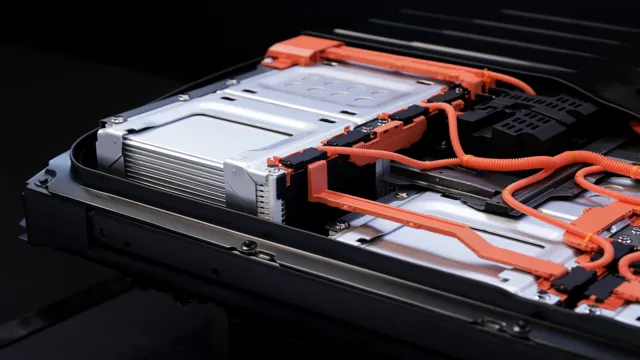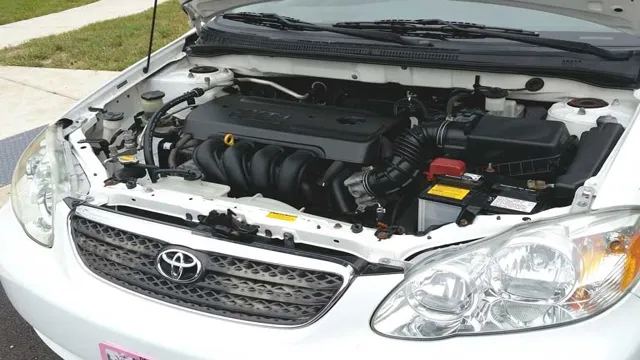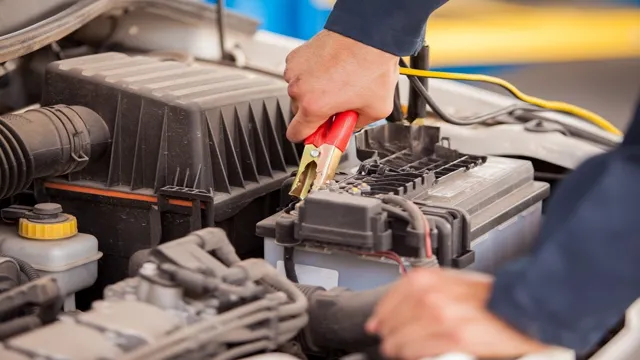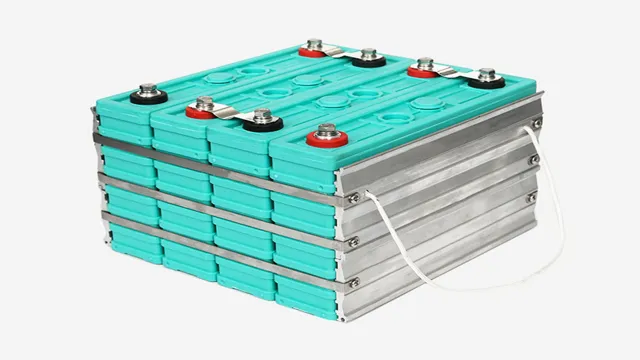The Shocking Truth About Battery Weight in Electric Cars: How it Affects Performance and Range
Electric cars are touted as the future of the automotive industry, with their eco-friendliness and fuel efficiency making them an attractive option for many. However, there is no denying the fact that the battery weight in these cars is a major concern. With a significantly heavier battery compared to traditional vehicles, electric cars can experience a number of drawbacks.
But just how heavy are these batteries and what kind of impact do they have on the performance of electric cars? Let’s dive in and take a closer look at the battery weight in electric cars.
Why battery weight matters
When it comes to electric cars, battery weight is an essential factor to consider. Electric vehicles depend on batteries to power their motors, and the more significant the battery, the more extended the miles it can cover. However, as the size of the battery increases, so does its weight, which affects the car’s overall performance.
The car’s weight affects its acceleration, braking distance, and cornering ability, making it crucial to minimize the battery’s weight. A heavier battery leads to higher energy consumption, which ultimately reduces the driving range. Therefore, electric vehicle manufacturers need to develop lighter batteries to improve the cars’ overall performance and range without compromising safety and power.
In conclusion, the weight of the battery in electric cars has a significant impact on their performance, making it crucial to develop batteries that are efficient and lightweight.
Impact on vehicle range
When choosing an electric vehicle, battery weight is an essential factor to consider. The battery pack’s weight directly affects the car’s range, which is critical for electric car owners. A heavier battery requires more power to move the car, meaning the vehicle consumes more energy, reducing its mileage range.
The heavier the battery, the more significant impact it has on the car’s range, which is why manufacturers are always searching for lighter and more efficient battery materials. Therefore, designers focus on making more lightweight batteries that can store more energy but are smaller in size. A lighter battery improves vehicle performance and range, making it possible for electric cars to travel further on a single charge.
It also reduces charging times, as it requires less charging power. Every kilogram of additional weight can decrease electric vehicle range, which directly affects the owner’s convenience and mobility. The more lightweight the battery, the better the vehicle’s overall driving experience, making it easier and cheaper for owners to go on longer trips.
Investing in thinner and lighter batteries is an intelligent and promising way to increase electric car sales in the future.
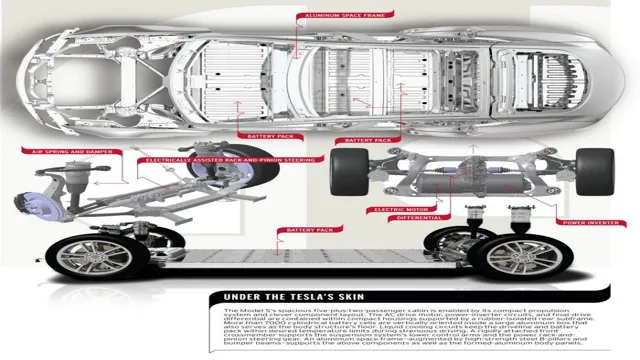
Effect on handling and performance
When it comes to electric vehicles, one cannot ignore the importance of battery weight. While batteries are essential for powering EVs, they add weight to the vehicle that impacts its overall performance and handling. The heavier the battery, the less efficient the vehicle is in terms of range and acceleration.
It also affects the car’s center of gravity, which can impact its stability and cornering abilities. This can result in decreased agility and handling, making the car feel less responsive. However, as battery technology advances and becomes more energy-dense, manufacturers can create batteries that are lighter and more efficient, leading to improved vehicle performance.
So, while battery weight may seem like a minor detail, it plays a significant role in a car’s performance and handling on the road.
Weight distribution concerns
When it comes to electric vehicles, battery weight is a significant factor to consider. Not only does the weight of the battery affect the overall weight of the car, but it also impacts the distribution of weight within the vehicle. In fact, ensuring proper weight distribution is critical to maintaining stability, handling, and overall performance.
If the battery weight is too heavy on one side of the car, it can make turning and cornering difficult. On the other hand, if the weight is distributed evenly, it can lead to better handling and improved driving dynamics. It’s essential for automakers to carefully consider battery weight distribution when designing electric vehicles to provide balanced weight distribution and better driving experience for the consumers.
So next time you’re considering purchasing an electric vehicle, be sure to check what the manufacturer has done to balance the weight distribution of the battery.
Factors affecting battery weight
Battery weight in electric cars is influenced by various factors. The electric car’s range relies on the amount of energy the battery can provide, which is why manufacturers tend to use high-density batteries. However, these batteries are heavy and have a significant impact on the overall weight of the car.
Battery size and capacity also play a crucial role in determining the weight of the battery. The bigger the battery, the more energy it can store and the heavier it becomes. The battery’s chemistry, material, and technology are also essential factors that affect its weight.
Lithium-ion batteries are commonly used in electric cars because they are light but offer high energy density. Manufacturers are continually looking for ways to reduce battery weight without compromising the car’s performance and range.
Battery chemistry
Battery chemistry is a complex subject, and there are several factors affecting the weight of batteries. The most significant of these factors is the type of battery chemistry used in the cells. Different chemistries have varying energy densities and specific energy, which affects the overall weight of the battery.
For example, a Lithium-ion battery, a popular choice in modern electronics, is much lighter than a Nickel-Metal Hydride battery, which provides less energy per unit of weight. Another critical factor is the size and shape of the battery, which can vary depending on the application. For example, a cylindrical battery is different from a rectangular battery, which affects the usable volume and thus the weight.
But irrespective of the battery chemistry used, the weight of batteries remains a critical concern for manufacturers and users alike. Whether it’s for powering electric vehicles or portable devices, lighter batteries mean more efficient and more comfortable use, making weight an important consideration for any battery designer or engineer.
Capacity and range requirements
When it comes to the capacity and range requirements of batteries, the weight of the battery is a significant factor that comes into play. The weight of a battery is directly related to the amount of energy it can store. The heavier the battery, the more energy it can hold.
Several factors affect the weight of a battery, like the type of chemistry used, the number of cells, and the materials used to construct the battery. Lithium-ion batteries are known for their high energy density, making them a popular choice for electric vehicles. On the other hand, lead-acid batteries have a lower energy density, making them suitable for applications where weight isn’t a primary concern.
As batteries become more advanced, there’s a constant push to make them lighter without compromising the energy storage capacity, and manufacturers are looking into using lighter materials like polymers, carbon fiber, and aluminum to achieve this goal. As a result, battery design is a critical aspect of developing high-capacity and long-lasting batteries for various applications, including electric vehicles, portable electronics, and renewable energy storage systems.
Manufacturing and materials costs
When it comes to manufacturing and materials costs of batteries, one major factor that affects weight is the chemistry of the battery. Lithium-ion batteries, for example, have a higher energy density compared to other battery chemistries, which means they can store more energy in a smaller space. This allows for lighter, more compact batteries that are easier to incorporate into devices.
Another factor that affects battery weight is the overall size and design of the battery. Smaller batteries generally weigh less, and designers can also use lightweight materials in the battery construction to reduce weight. Of course, reducing weight can also affect battery performance, so finding the right balance between weight and performance is crucial in battery design.
Ultimately, battery weight is just one of many factors to consider in the manufacturing and materials costs of batteries. So, it is important to choose the right battery chemistry and design to optimize overall battery performance and minimize manufacturing and materials costs.
Reducing battery weight
Reducing battery weight in electric cars is a crucial step towards sustainability and efficiency. Heavier batteries require more energy to move, reducing the range of the vehicle and affecting its performance. One approach to address this challenge is to use lightweight materials for the battery components, such as carbon fiber, aluminum, and polymer composites.
Another strategy is to optimize the design of the battery pack, reducing its size and improving its thermal management system. By reducing the weight of the battery, electric cars can achieve better acceleration, longer range, and reduced energy consumption, making them more attractive to consumers and more competitive with traditional gasoline vehicles. The shift towards lightweight batteries is also driving innovation in the materials science and engineering fields, paving the way for more sustainable and advanced energy storage solutions.
Advancements in battery technology
Advancements in battery technology are changing the game when it comes to portable electronics. One of the most significant advancements we’re seeing is a reduction in battery weight. Over the years, batteries have been a heavy component of electronics devices, leading to clunky and cumbersome designs.
However, with new technology, battery manufacturers are finding ways to make batteries that are lighter and more efficient. This is a game-changer for anyone who uses portable electronics, as it allows for devices that are easier to carry, more comfortable to use, and more environmentally friendly. A lighter battery means more energy density and longer run times for the same size and weight of the battery.
Imagine being able to use your phone all day without having a bulky battery weighing you down. It’s like carrying a feather instead of a brick! As battery technology continues to improve, we can expect even more significant weight reductions in the future.
Material engineering innovations
Material engineers have made significant strides in reducing the weight of batteries without compromising their performance. By utilizing advanced materials such as lithium-sulfur and solid-state, battery weight can be reduced by up to 70%. This innovation is beneficial in various applications, including electric vehicles, where reducing weight directly affects the vehicle’s operational range.
Additionally, lighter batteries can improve the efficiency of renewable energy storage systems, making them more economically and environmentally viable. As material engineering innovations continue to progress, there is no doubt that battery weight will continue to be reduced further, revolutionizing the way we store and use energy. The utilization of advanced materials is critical in achieving sustainable development goals, as it creates a more reliable and more efficient energy storage ecosystem, reducing carbon emissions to combat climate change.
Conclusion
In conclusion, the weight of batteries in electric cars may seem like a heavy burden, but it’s all about perspective. Yes, they do add extra weight to the vehicle, but they also provide the necessary power for a sustainable and environmentally friendly mode of transportation. Plus, who needs to worry about extra weight when you can zoom by all the gas-guzzling cars stuck in traffic? So, let’s continue to embrace the weighty batteries and enjoy the ride towards a brighter and greener future.
It’s electrifying!”
FAQs
What is the average weight of batteries used in electric cars?
The average weight of batteries used in electric cars can vary depending on the manufacturer and model, but it’s typically around 500-600kg.
How does the weight of batteries affect the performance of electric cars?
Battery weight can negatively impact the performance of electric cars, including handling, range, and acceleration. However, advancements in battery technology and efficiency are helping to reduce the weight.
Are there any efforts to make batteries lighter for electric cars?
Yes, many manufacturers are investing in research to develop lighter and more efficient batteries for electric cars. This includes using new materials and designs to reduce weight while maintaining performance.
How do the weight and size of electric car batteries compare to traditional gasoline engines?
Electric car batteries are typically larger and heavier than traditional gasoline engines, which can impact the overall weight distribution and handling of the vehicle. However, electric cars also have the benefit of not requiring a heavy fuel tank or exhaust system.
